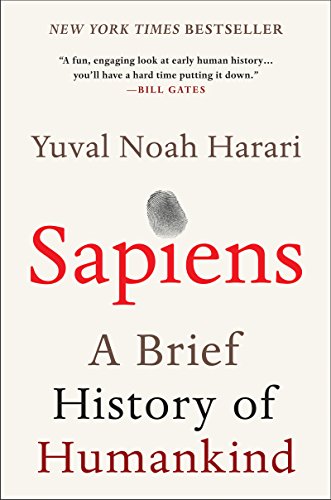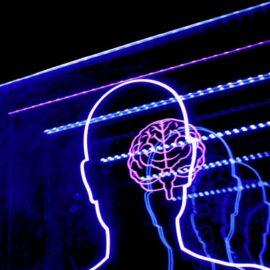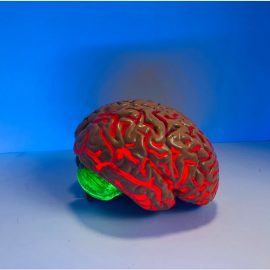

This article is an excerpt from the Shortform summary of "Sapiens: A Brief History of Humankind" by Yuval Noah Harari. Shortform has the world's best summaries of books you should be reading.
Like this article? Sign up for a free trial here .
What is the biology of happiness? What neurochemicals are involved? Does my biological dictate how happy I’m destined to be?
The biology of happiness is a theory that our happiness is determined mostly by oxytocin, serotonin, and dopamine. According to this theory, some people are wired to be happier than others.
We’ll cover the theory of the biology of happiness and explore some counter views on what makes us happy (or not).
The Biology of Happiness
According to the biology of happiness, our happiness is determined by the biochemical reactions caused by hormones like oxytocin, serotonin, and dopamine. This implies that happiness comes from pleasurable feelings—whether we win the lottery or fall in love, happiness comes not from the experiences themselves but from the resulting flood of hormones and electrical signals in our brains.
Unfortunately, we have evolved to remain in a relatively static state of happiness. It wouldn’t be prudent for the success of our species to be happy all the time. For example, sex evolved to be pleasurable so that men would be motivated to spread their genes. But this pleasure also evolved to be limited. If orgasms lasted forever, males wouldn’t bother doing anything else, like hunt for food, eat, or look for other available females.
Like an air conditioner, our biomechanical system is programmed to return to a set point, and every individual has a slightly different set point. Some air conditioners are set to 70 degrees Fahrenheit and some are set to 20. Similarly, some people’s happiness levels are set to fluctuate between levels 6 and 10 and level out at 8, whereas other people’s levels fluctuate between 3 and 7 and level out at 5. This means that some people are wired to be happier and some wired to be gloomier, regardless of external circumstances like money or health. This is the biology of happiness.
For example, the French Revolution brought about many changes: it did away with the monarchy, gave peasants land, and gave citizens rights. But it didn’t change the biochemical systems of French individuals. Consequently, the revolution may not have had much of an impact on French happiness. Those who were happy before the revolution were happy after it. Those who had griped about Louis XVI and Marie Antoinette before the revolution probably griped about Robespierre and Napoleon after it. Their genetic predispositions, and therefore outlooks on life, remained the same, according to the biology of happiness.
The biology of happiness suggests that historical developments have had no effect on happiness since biologically, we’re pretty much the same as we were 5,000 years ago. The only historical event that could have possibly impacted our happiness was the development of antidepressants that change our biochemistry, like Prozac. But we don’t like this idea. We’re troubled by happiness that comes from a pill, although we’re not sure why.
Aside from the biology of happiness, there are other influential theories of happiness:
The “Finding Meaning” Theory of Happiness
Some studies suggest that our biochemistry and pleasurable feelings aren’t everything when it comes to happiness. They dispute the biology of happiness. For instance, studies show that when you break down the actions involved in raising a child, you don’t get pleasurable sensations. Instead, you get dishwashing, diaper changing, temper tantrums, and various expenses. There are far more unpleasant moments than pleasant ones when raising a child. On the face of it, childrearing doesn’t seem like something that’s going to bring much happiness. Yet it does. Parents say that having children brings them more happiness than anything else in life. Are they lying? Deluding themselves?
The “finding meaning” theory of happiness says that you’re happy if you view your life as having a purpose. Even hardships can contribute to happiness if you find meaning in them. Children often serve to give meaning and purpose to the lives of their parents. This makes parents happy to have children and has little to do with the biology of happiness.
Science, on the other hand, doesn’t offer this comfort. From the scientific point of view, life has no meaning. Evolution doesn’t have a purpose. Natural selection works “blindly.” This means that any meaning you ascribe to your life, whether it comes from a capitalist, humanist, or religious point of view, is a delusion. Therefore, your happiness depends on your ability to align your particular delusion with the delusions of society. As long as everyone tells the same myths about meaning, you can convince yourself of the reality of that myth. You can believe your life is meaningful and through this belief find happiness.
The “Present Moment” Theory of Happiness
Another theory of happiness that takes a different angle than the biology of happiness is the “present moment” theory of happiness. All the options so far are dependent on our feelings. As a society, we privilege our feelings, urging individuals to be true to themselves and follow their hearts. We judge what is good and moral based on our feelings.
Although this is our prevailing worldview now, it’s an oddity in history. For most of history, religions have given objective standards for what makes something good and moral. This makes sense. Surely not everything that feels good is good. If we ask heroin addicts when they’re happiest, they’re going to tell us it’s when they shoot up. Does that make heroin the key to happiness?
Feelings are not all-important. They’re just sensations. We shouldn’t be attached to good feelings or averse to bad feelings. Craving pleasure leads to suffering—we’re either discontent because we don’t have the pleasure we want, or we’re anxious about losing the pleasure we have. The root of suffering is chasing and grasping at pleasure while we run from and try to rid ourselves of pain. This also has little to do with the biology of happiness.
———End of Preview———

Like what you just read? Read the rest of the world's best summary of "Sapiens" at Shortform . Learn the book's critical concepts in 20 minutes or less .
Here's what you'll find in our full Sapiens summary :
- How Sapiens outlived and outlasted the 8+ other human-like species on Earth
- The 3 critical revolutions in human existence that led to our domination of the planet
- How much of what powers our world today is really just a shared mass delusion
- What the future of humanity might look like






